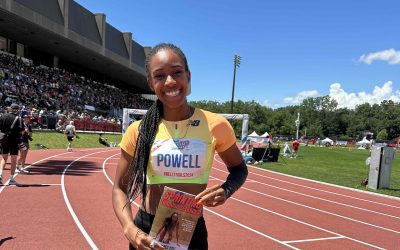This month’s Athletic Bookworm pick was ROAR, and it was a great read to start 2018! “ROAR: How to Match Your Food and Fitness to Your Female Physiology for Optimum Performance, Great Health, and a Strong, Lean Body for Life” was written by Stacy Sims with Selene Yeager, with women’s health and optimal performance as the goal, both from fitness and nutrition standpoints. I freaking loved it. Sims is brilliant, and Yeager is one of my favorite writers, so I knew it was going to be packed with great info while being super easy to digest and enjoyable to get through. (That also explains why I’m managing to get this review done before the end of the month. #2018Goalz)
Anyway, I’ve never been so happy to have Kindle highlights, because there was SO much great info in here. For this Athletic Bookworms pick, I’m going to use some of those highlights to dive into some of my favorite moments in the book. I think it’s a great read for pretty much anyone (obviously primarily women): beginners can get a ton of information and it’s a great starting point, and for advanced, already-invested fitness pros, it has some good reminders, some surprising tidbits, and really great intel on how to optimize racing performance around your physiology.
Women are not small men.
Stacy Sims built her career around this concept, so it’s natural that she would begin the book this way: “Right out of the gate, it was apparent that sex differences extend far beyond ponytails and sports bras.”
Why is that? Our cycles, primarily. “There is also evidence that blood sugar levels, breathing rates, and thermoregulation are negatively impacted during this time of the month, which may well account for the slight decreases in aerobic capacity and strength. I’d be lying if I said that exercise won’t feel harder during those high-hormone days before your period,” Yeager and Sims write. They also add that estrogen reduces carb-burning ability, “likely to help you save those limited glycogen stores in case of pregnancy, famine, and emergency, while it increases fat burning and fatty acid availability.” Sigh. But they add that this is great for endurance activities, but not for HIIT.
Write it down.
“I believe that you can tap into your physiology to see how your diet, training, and lifestyle are affecting your physical being,” Sims says.
“Keep a journal. These days my clients are all about tracking every little move. They have activity trackers and sleep monitors and apps that help them analyze every morsel they put into their mouths,” Sims writes. “Yet I’m surprised how few women make note of their menstrual cycle and how they feel during it. Start now. As you train through several cycles, pay attention to how your body reacts and responds to training during each phase. It’ll help you identify when you’re strongest and when you need to put in a little extra work for the performance you want.”
Additionally, she addresses the emotional side of things: Knowing your why. “If you’ve ever felt unmotivated to do a particular workout or follow a certain plan, ask yourself why you were planning to do it in the first place,” she writes. “If you can’t answer the question, it could explain your lack of motivation. Because you’re wired for big-picture thinking, it’s important that you know why you’re doing what you’re doing—especially when it’s something hard, such as an interval workout or gym session.”
Consider your birth control.
“I generally advise my athletes that if they do need to use birth control, then the IUD is the way to go; it is a localized dose of progestin, rather than complete systemic circulation of estrogen and progesterone,” they explain. I’m a HUGE fan of this. (I use Skyla, after trying both Mirena and Paraguard and experimenting with pretty much EVERY other option available. The IUD is the only thing I’ve found that I can tolerate and not be a terrible human being/athlete.)
Overtraining effects everybody.
“When I talk about overtraining to amateur athletes, they often act surprised, as if it’s just a problem for the pros,” Sims writes about overtraining. Dr. Michael Ross told me the same thing recently in an interview and I was floored. I hadn’t thought about it before, but if you’re working a ton, dealing with family or relationship stress, trying to keep a household running, maybe doing a side-hustle project, and trying to train, even a few hours a week could push you into overtraining territory. Sad, but true. “Everyday active people are actually more prone to staleness and overtraining, which are marked by persistent fatigue and poor performance, because they don’t have the luxury of putting their feet up and getting proper rest after their hard training sessions,” Sims adds. “It’s fine to train hard, and often it’s appropriate to train hard. But remember, those killer CrossFit workouts of the day and marathon training sessions take a toll on pretty much every system in your body…”
How do you tell if you’re overtrained? Start with the brain, not the body. “Your emotions are an early indication of when these biological factors are heading south. So while it’s natural to feel a little tired and agitated after a hard training block or a few really tough workouts, your mood should rebound with rest, and you should feel ready to go for the next hard session,” Sims writes. “If you’re still cranky, irritable, and down, dial back your efforts until you feel recharged. Are you getting enough sleep? You should feel refreshed from a good night’s sleep or two.”
You may need to eat more.
Underfueling, both in workouts and throughout the day, can wreak havoc on the athletic body. “It’s a cascade of hormonal disruption that results from one main factor: inadequate nutrition,” Sims says. “These women aren’t feeding themselves enough to meet their physical demands, and their physiology is in upheaval. I’m happy to report that I’m not alone in this revelation.”
While she likes the journal for your cycle, Sims really isn’t a fan of recording everything: especially calories. “You’ll notice that nowhere in this book do I recommend counting calories. That’s because the quality of your food is far more important for getting lean than the number of calories it contains… Besides, research shows that the mental effort of counting calories causes stress, fatigue, and burnout and leads to bingeing because you feel miserable and deprived.”
^RealTalk. I’ve tried it and while sometimes, I needed it for a few days to see that I was missing major food groups and massively underfueling, after those initial days, it makes me neurotic. I suggest using apps like MyFitnessPal on occasion to check in, but not as a regular, daily regimen. It kills my time and willpower and I know the same is true for a lot of people!
There’s always room for improvement.
The authors discuss blood and urine testing in depth, and what I loved was Yeager’s honest account of her bloodwork experience. “I would have never guessed any of these markers were out of whack. I felt great in training and was getting good results in my races,” she writes. “That’s just how I am, though. I feel pretty good even when on paper I should feel lousy, which sounds like a good problem to have, but it’s still a problem, because I could be silently and slowly doing damage to my overall health without seeing the signs.”
I’ve definitely been there: decent results and training, but persistent slight feelings of ennui, generally crappiness and nagging fatigue. I did hormone panels last year and the results were really illuminating—now, bloodwork and urine testing (especially regarding hydration status) is next on the list!
Haven’t read ROAR yet? Get it here:
Let me know in the comments if you read along, and if any advice really stood out for you!
Before you go… want a free 7-day guide to healthy habit change? Sign up here!





